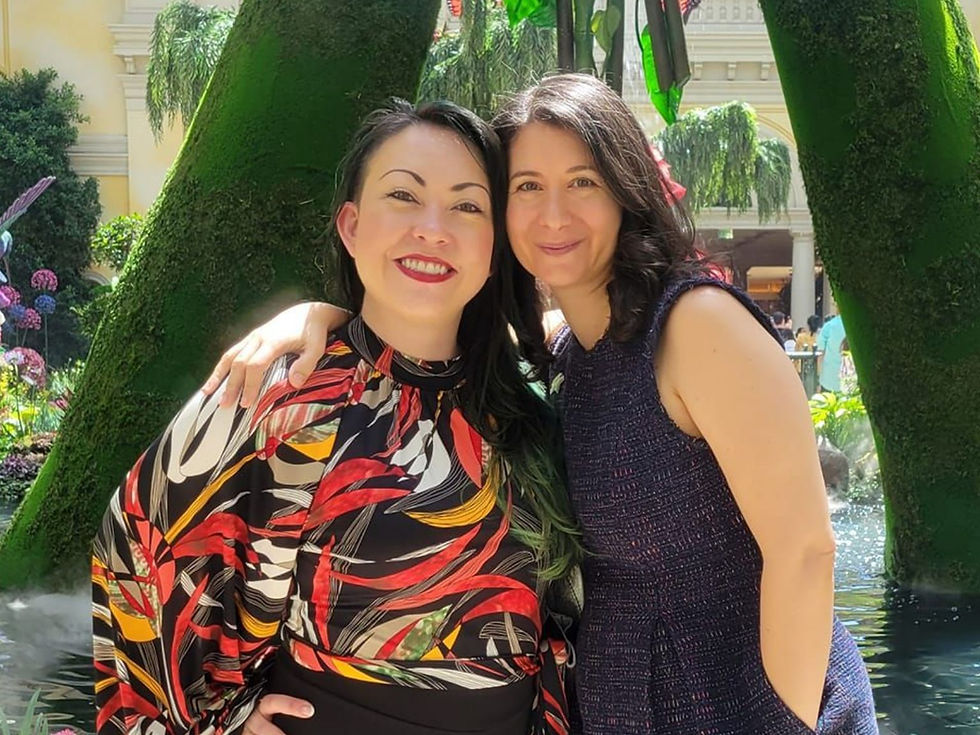How Women Will Shape the Economy During the Great Wealth Transfer
- Rayah Levy, FCD Invest President

- Jun 4, 2025
- 3 min read

The "Great Wealth Transfer" refers to the unprecedented movement of roughly $84 trillion in assets from baby boomers and the Silent Generation to younger generations over the next two decades. A significant and historic aspect of this transfer is the outsized role women will play—as both inheritors and decision-makers.
Women as Primary Beneficiaries
Demographic Advantage: Women statistically outlive men, and are more likely to inherit wealth from spouses and parents. Estimates suggest that between 2024 and 2048, over $50 trillion will pass to older American women through "horizontal" transfers (from husbands to wives), with women expected to receive more than 95% of this wealth.
Rising Economic Power: By 2030, women are projected to control at least $30–34 trillion in the U.S. alone, nearly doubling their share of national wealth compared to recent years.
Distinct Economic Behaviors and Priorities
Long-Term Focus and Risk Aversion: Women generally prioritize long-term financial security and capital protection. They are more likely to consider issues like family well-being, inclusion, and fairness alongside traditional financial goals.
Philanthropy and Social Impact: Research shows women donate a larger percentage of their wealth than men and are more likely to support causes benefiting women and girls, such as health, education, and social justice. This could lead to a surge in funding for nonprofits and social enterprises, especially those focused on equity and community development.
Values-Based Investing: Women are more inclined to engage in sustainable and impact investing, aligning their portfolios with environmental, social, and governance criteria. This trend is expected to accelerate as women gain more control over assets, potentially shifting capital toward companies and funds with strong social missions.
Entrepreneurship and Economic Inclusion
Business Creation: With greater access to capital, more women may start or expand businesses. Women-led businesses tend to hire more women and pay them more, contributing to broader economic participation and potentially higher overall corporate performance.
Investment in Women: As women control more wealth, there is likely to be increased investment in female entrepreneurs and investment opportunities, helping to close the venture financing gap and promote a broader understanding of social diversity in business leadership.
Challenges and Opportunities
Wealth Gap Remains: While the wealth transfer will help narrow the gender wealth gap, it will not eliminate it. Structural barriers—such as under-representation in executive roles and historical inequities—persist.
Preparation and Planning: Only a minority of women have discussed generational wealth transfer with advisors or family members, highlighting the need for better financial education and planning to maximize the benefits of inherited wealth.
The Great Wealth Transfer is poised to reshape the U.S. economy, with women emerging as powerful economic actors. Their approach to investing, philanthropy, and business creation is likely to drive a more values-driven, and sustainable economic landscape. While challenges remain, the coming decades represent a historic opportunity for women to influence the direction of wealth and the broader economy.
As President of FCD Invest - a woman-owned business with women heading our leadership team - it brings me great joy to see other women rise and flourish. We are available to encourage women during the Great Wealth Transfer with financial literacy in matters of wealth preservation and stewardship. We are expert planners and can help make wealth transitions seamless and exciting.

Please email FCD Invest at info@fcdinvest.diamonds to discuss your personalized wealth preservation strategy.
For more information on Fancy Color Diamonds and Fine Art as an investment, please visit our "Explore" page linked HERE.




Comments